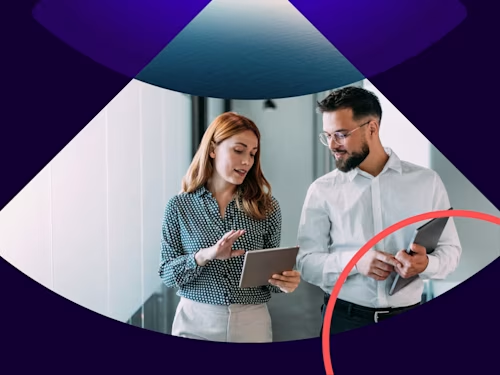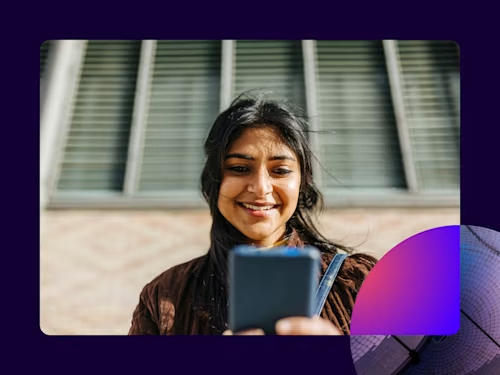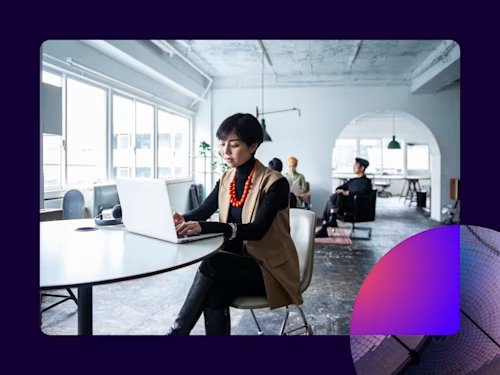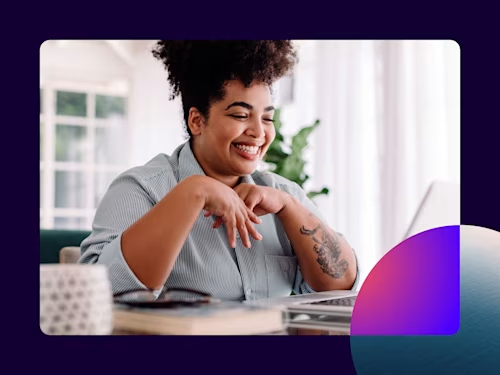
5 Tips to Build a Women’s Employee Resource Group
Docusign Women was the company's first official Employee Resource Group. Read about how it's grown over the years.

Docusign Women was the company's first official Employee Resource Group. Read about how it's grown over the years.
Women are more powerful together—it's a fact!—and creating opportunities for them to meet and collaborate creates a noticeable shift in the corporate cosmos. But how do you bottle that power? The answer for us at Docusign, the leader in electronic signatures, has been our wonderfully strong women's network. It has evolved from a casual dinner group seven years ago to the launch of Docusign's first official Employee Resource Group (ERG) in 2015 to a powerful force for change in 2021.
Women—inside the working world and out—can always use an extra boost of support. So in honour of International Women's Day this year, here are five tips to consider when building a women's employee resource group at your organisation.
1) It's OK to start out small
When I started in 2012, Docusign was 150 people strong, with very few women. In those early days, the company was still in startup mode, grinding to establish itself as a disruptive presence. The few women who were part of the team started to gather for regular dinners as a simple way to connect.
Those small dinners started out just for fun, an easy release during especially hectic times, but they quickly became more. Though we were a small group, gathering with these women helped quell our anxieties, raise our confidence and build a community of support. They created the feeling of solidarity, that we aren't as alone at work as we sometimes feel.
2) Evolve every year
As our small group grew, we eventually required more structure. In 2015 Robin Ducot, Catherine Courage and I formalised our initiative, becoming Docusign's first ever Employee Resource Group (ERG). We named this employee-led program Women at Docusign (clever, eh?). That first year, we aligned on a mission to make Docusign an equitable place for women and worked hard to establish our presence.
For the next few years, we worked together, volunteered on the side and propelled the company forward—all with no full-time employee dedicated to this cause. Each year we grew, and as we did, we were able to accomplish more. In 2018, Docusign hired Charlotte Flanagan to lead its diversity and inclusion efforts; Charlotte was instrumental in helping our group align across offices and create a unified strategy and direction. Last year, we updated our name to Docusign Women and now have active, growing chapters in San Francisco, Seattle, Chicago and Dublin.
3) Stay out of the shadows
All too often, women are content with self-satisfaction, but the rest of the organisation needs to know about the good work you're doing. Women's groups make the company more inclusive for employees and more desirable for recruits. So make sure you're not invisible. Keep a file of your accomplishments and offer shoutouts for work well done.
We track our progress each year at Docusign. In the early years when we were entirely employee-led, this was as simple as a yearly roundup email of the meetings, contributions and work we did. Now that we're firmly established and company-supported, we hold a yearly offsite to work on vision, mission, values and goals—then we publish and track our plan via our internal Docusign website.
4) Collaborate, but set clear boundaries
Any size company can create a women's network, but as you get larger, you have to examine what's needed, formalise the group and add supporting resources. Today Docusign has two full-time employees dedicated to diversity and inclusion who help manage our ERGs, and with 500+ members and active chapters in four cities, Docusign Women is our largest ERG.
Now that we're an established group, we've had to set clear boundaries. For example, it's important to determine what is the work of the ERG versus the company? The key is to allow both sides to play an active role. Who leads discussions on vision? What role does the women's group play in retention? How does our women's group align with the values and mission of the company as a whole? Consider those questions as you grow.
5) Think about the role of allies
Finally, a key to our success has been collaboration—not just within our own group, but among other ERGs and beyond. Our mission is to make Docusign a more inclusive space and a desirable place for women. It's in our best interest to work with others to make that happen.
How do you include men who want to help? How do you become allies for other groups? The key is to be intentional in inviting allies to the table, providing them with resources and including them in events where it makes sense. With everyone aligned and working together, not only do we work happier, we're also more productive and retention has improved across the board.
How have you created inclusive spaces for women at your company?
We didn't set out to create a formal women's network, but the resulting one has been magical for me personally, for the women of Docusign and for the company as a whole. But we certainly don't have all the answers and are always looking for ways to improve. How can we be better? What's worked at your organization? Share your tips online at @Docusign (I'd love to hear them too at @RobinJoy). And if you're interested in joining our team, sign up for a free Docusign account to experience our products firsthand.
Related posts
Docusign IAM is the agreement platform your business needs



